Food & Grocery Shopping
Eat Less Meat, Skip the Bags, Buy in Bulk, & Shop Locally
Eat Less Meat
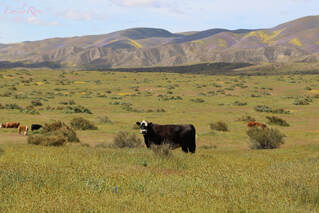
Raising and producing meat for consumption uses a huge amount of land and water, and creates a large amount of methane gas. Alone, any one of those things is problematic and, together, the consequences are enormous. Methane is considered a greenhouse gas, meaning that once it is emitted into the atmosphere it has a warming effect. Learn more about greenhouse gases by clicking here. Deforestation of our land for agriculture has caused a huge decline in the amount of available habitat for organisms all over the world. It has also entailed cutting down and removing extremely large numbers of trees, which help provide us with oxygen to breathe, temperature regulation, and carbon sequestration in addition to many other ecological services.
Cutting down on your meat consumption can have a HUGE impact. You don't even need to become fully vegetarian or vegan! Just by eating a little bit less meat each week, you can save water, save land, save food, and save our planet! Try a meatless Monday to start, and see where it takes you!
Cutting down on your meat consumption can have a HUGE impact. You don't even need to become fully vegetarian or vegan! Just by eating a little bit less meat each week, you can save water, save land, save food, and save our planet! Try a meatless Monday to start, and see where it takes you!
Skip the bags
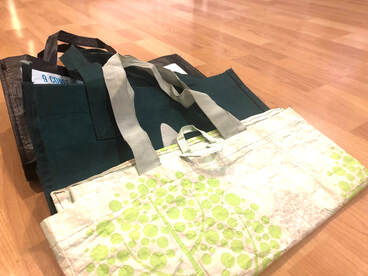
Reusable Shopping Bags
Bringing your own bags to the grocery store is a great way to cut back on the amount of waste created during the grocery shopping process. You can find reusable shopping bags at most grocery stores near the check out. They are generally inexpensive. Bringing your reusable bags may take some practice to get used to. I often used to forget to pack them before a shopping trip. Now, I keep reusable bags in my car just in case I make a last minute decision to stop at the store. You can also find bags that fold into themselves, and are perfect for keeping in your backpag, purse, or work bag just in case!
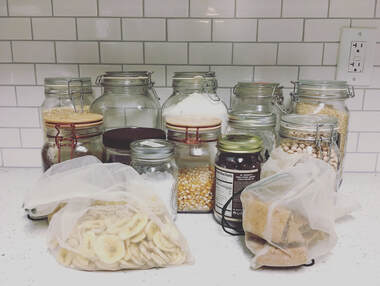
Reusable Produce Bags
There are lots of companies making reusable produce bags now a days. These are great because they are inexpensive, and allow you to pass on the plastic packaging for your produce, or other bulk items! You can find these types of bags at many grocery stores or natural food stores. If you can't find any available in your area, check out some of these sites: https://www.ecobags.com/Our_Products/Produce_Bags
http://www.greendepot.com/greendepot/#sthash.XW6eS9um.dpbs
https://flipandtumble.com/products/produce-bags
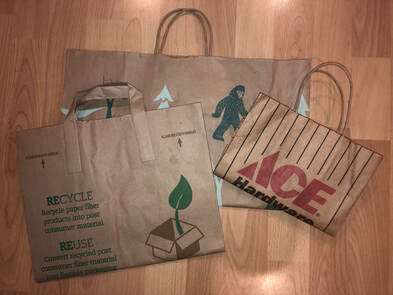
Reusing Old Bags
Another option with no attached costs is to save bags that you have already brought home, and use them again! Whether paper or plastic, most bags can usually be used multiple times before needing to be recycled or thrown away. You can use your old shopping bags for groceries, and use other bags for produce. I usually save my old bread and tortilla bags, give them a rinse and dry them, and bring them to the store or farmer's market for my produce!
Another option with no attached costs is to save bags that you have already brought home, and use them again! Whether paper or plastic, most bags can usually be used multiple times before needing to be recycled or thrown away. You can use your old shopping bags for groceries, and use other bags for produce. I usually save my old bread and tortilla bags, give them a rinse and dry them, and bring them to the store or farmer's market for my produce!
Buy in bulk
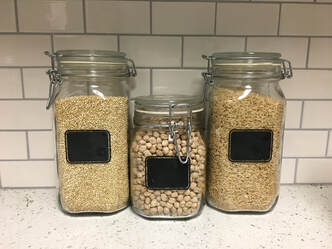
How does it work?
Find a store near you with bulk options. Many natural food stores, large grocery stores, or local COOP's will have bulk options. If you live in an area where you cannot find any waste-free or bulk options, request changes from your local grocery store! You as the consumer have the power to make a change, because they want you to buy their products! Many stores are starting to make big changes after hearing the demand from their customers.
When you begin buying in bulk, it may seem a bit tedious. There may be a few extra steps involved, but once you get used to it, it all just becomes a normal part of the grocery shopping process.
How does it work?
Find a store near you with bulk options. Many natural food stores, large grocery stores, or local COOP's will have bulk options. If you live in an area where you cannot find any waste-free or bulk options, request changes from your local grocery store! You as the consumer have the power to make a change, because they want you to buy their products! Many stores are starting to make big changes after hearing the demand from their customers.
When you begin buying in bulk, it may seem a bit tedious. There may be a few extra steps involved, but once you get used to it, it all just becomes a normal part of the grocery shopping process.
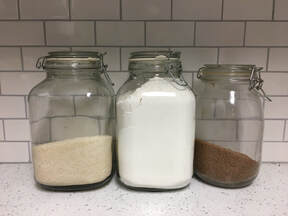
1. First, you will need to bring clean containers to the store with you.
2. When you arrive, you can go to a register and request the store clerk to weigh your containers before filling them up. This is the tare weight, and will be subtracted when you are checking out to ensure that you only pay for the weight of the product you are buying, not your container.
3. Locate the products you want, and fill up your pre-weighed containers. In many stores you can find items such as flour, sugar, rice, beans, even snacks like chocolates or trail mix! The product you purchase will have a code associated with it. It is important to write the code down or take a photo so that you remember the appropriate codes when you are checking out.
4. Leave the store with a smile knowing that you have stocked up on your groceries in a waste free fashion!
2. When you arrive, you can go to a register and request the store clerk to weigh your containers before filling them up. This is the tare weight, and will be subtracted when you are checking out to ensure that you only pay for the weight of the product you are buying, not your container.
3. Locate the products you want, and fill up your pre-weighed containers. In many stores you can find items such as flour, sugar, rice, beans, even snacks like chocolates or trail mix! The product you purchase will have a code associated with it. It is important to write the code down or take a photo so that you remember the appropriate codes when you are checking out.
4. Leave the store with a smile knowing that you have stocked up on your groceries in a waste free fashion!
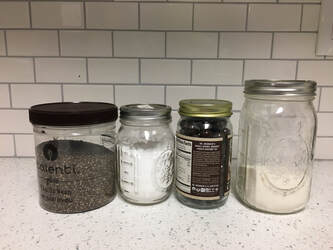
Cutting the costs!
Many people are under the impression that trying to live a zero waste lifestyle is expesive and tedious. While it does take a little extra effort and thought, it doesn't have to come with a greater pricetag! Some items are actually cheaper when purchased in bulk! It's a win for the planet and your wallet! I have found this to be true with olive oil, hand soap, and other bulk items. I also reduce my costs by reusing materials such as old jars from pasta sauce, or old plastic bags from bread. That way, I don't have to go and spend money on buying new jars, I just use the ones that would otherwise end up in the recycling.
Many people are under the impression that trying to live a zero waste lifestyle is expesive and tedious. While it does take a little extra effort and thought, it doesn't have to come with a greater pricetag! Some items are actually cheaper when purchased in bulk! It's a win for the planet and your wallet! I have found this to be true with olive oil, hand soap, and other bulk items. I also reduce my costs by reusing materials such as old jars from pasta sauce, or old plastic bags from bread. That way, I don't have to go and spend money on buying new jars, I just use the ones that would otherwise end up in the recycling.
Buy local
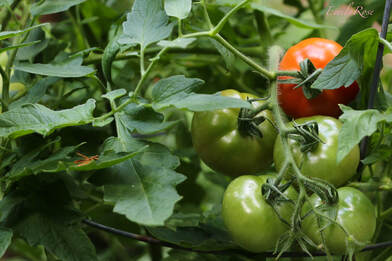
Buy Local
Shopping locally is great for the environment, and your community! When grocery shopping, check the labels or stickers on the items you purchase to see where they're coming from, you might be surprised at what you find! Buying products locally helps to support your local economy and local business owners. It keeps the money from your wallet in your own town and out of the hands of large scale corporations with hidden agendas that are harming the planet. Visiting farmers markets, or buying produce from your local farmers is a great way to get to know and support the people in your community.
Shopping locally is great for the environment, and your community! When grocery shopping, check the labels or stickers on the items you purchase to see where they're coming from, you might be surprised at what you find! Buying products locally helps to support your local economy and local business owners. It keeps the money from your wallet in your own town and out of the hands of large scale corporations with hidden agendas that are harming the planet. Visiting farmers markets, or buying produce from your local farmers is a great way to get to know and support the people in your community.

Food Miles
Food items that are shipped around the globe require the use of fossil fuels like gasoline to fuel their transportation. The amount of miles that our food travels from harvest and production to our kitchen has often been referred to as food miles. You can calculate the food miles of some of your favorite foods by visiting https://www.foodmiles.com/.
When our food needs to be shipped long distances, it has to stay fresh throughout the duration of transportation, and will need to have an appropriate shelf life while it sits in the grocery store waiting to be purchased. Most produce is not able to last such lengths of time naturally, so when we buy produce that is being shipped from another state or country, it often requires the use of preservatives or pesticides to keep our food looking fresh.
By buying food that is locally sorced, you can be assured that your food with be fresher & tastier, will likely have fewer chemical additives, and require smaller amounts of fossil fuels. Better yet, try growing your own! Even growing a couple of herbs in your windowsill, or other fruits and veggies can be a fun process that the earth will appreciate! A Win-Win-Win situation!
Food items that are shipped around the globe require the use of fossil fuels like gasoline to fuel their transportation. The amount of miles that our food travels from harvest and production to our kitchen has often been referred to as food miles. You can calculate the food miles of some of your favorite foods by visiting https://www.foodmiles.com/.
When our food needs to be shipped long distances, it has to stay fresh throughout the duration of transportation, and will need to have an appropriate shelf life while it sits in the grocery store waiting to be purchased. Most produce is not able to last such lengths of time naturally, so when we buy produce that is being shipped from another state or country, it often requires the use of preservatives or pesticides to keep our food looking fresh.
By buying food that is locally sorced, you can be assured that your food with be fresher & tastier, will likely have fewer chemical additives, and require smaller amounts of fossil fuels. Better yet, try growing your own! Even growing a couple of herbs in your windowsill, or other fruits and veggies can be a fun process that the earth will appreciate! A Win-Win-Win situation!
